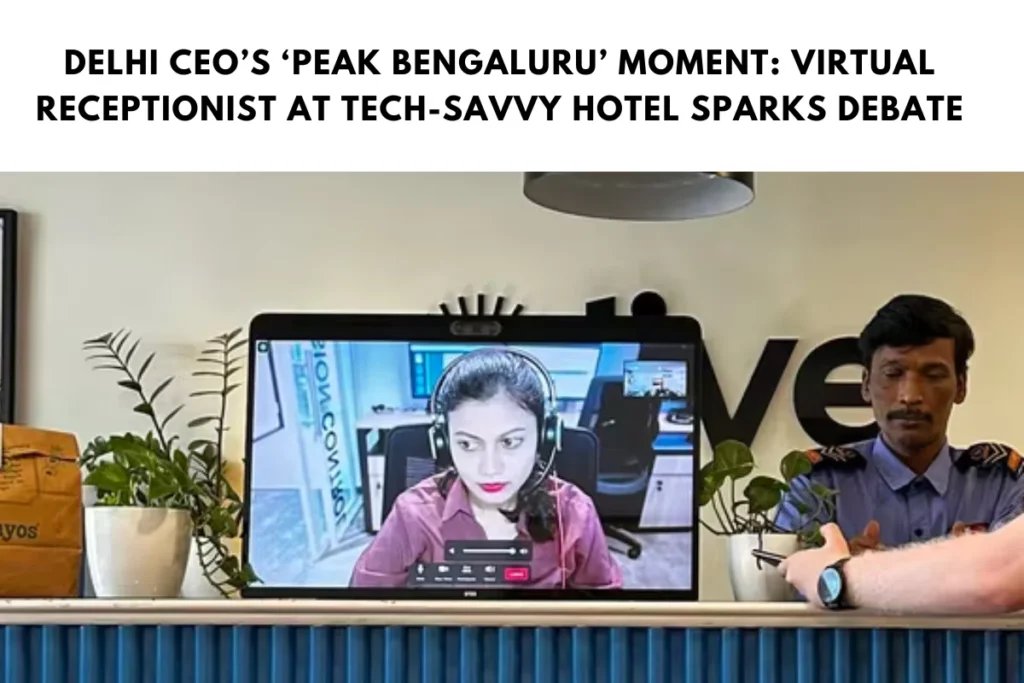
A recent stay at a Bengaluru hotel left a Delhi-based CEO pleasantly surprised when she encountered a virtual receptionist managing the front desk—a sign of the growing tech trends in India’s innovation hub.
Ananya Narang, CEO of the content-as-a-service platform Entourage, shared her experience on LinkedIn, posting a photo of the virtual receptionist displayed on a laptop screen at the hotel. Referring to it as her personal “Peak Bengaluru” moment, Narang noted that this innovative reception method is not yet widespread in India. “Peak Bengaluru Moment – A Virtual Receptionist. Once I checked in, I realized the hotel had no staff except for two security guards and one or two technicians,” she wrote.
The virtual receptionist is part of a larger trend where hospitality teams, based at a central office, manage guest services through video conferencing, eliminating the need for an on-site receptionist. “Everything was coordinated via trained hospitality staff at their head office, simultaneously managing multiple properties,” Narang explained, adding, “You’ll see this nowhere in India yet, except in Silicon Valley.”
Innovation or Added Complexity?
For a long time, the hospitality industry was considered unsuitable for remote work, but the emergence of virtual receptionists is challenging that notion. By leveraging technology such as video conferencing, mobile apps, and AI-driven chatbots, virtual receptionists are handling tasks traditionally performed by on-site staff.
Narang’s post sparked a lively debate on X, with users questioning whether this trend is a groundbreaking innovation or an unnecessary complication for guests. Vinay Aravind commented, “This is a great parable for Indian startups and their ‘innovation.’ It worsens the customer experience. It worsens the worker experience. But there’s a shiny tech buffer thrown in for the sake of it.”
Another user expressed frustration, emphasizing the importance of genuine human interaction or the option to complete tasks without unnecessary obstacles. “Either give me a friendly human interaction, or give me the ability to get things done without jumping through hoops designed so your CMO can win a useless award,” they said.
Despite the skepticism, some users acknowledged the potential benefits of virtual hotel staff. Dhruv, another X user, expressed enthusiasm, stating, “This is actually wonderful. We can provide service to all the hotels in the world virtually… I hope something like this takes off.”
However, practical concerns were raised, particularly regarding the reliance on Wi-Fi for guest check-ins, highlighting the need to address potential technical challenges.
In conclusion, the discussion around virtual hotel staff on platform X revealed a wide range of opinions, reflecting the ongoing debate within the hospitality industry about the integration of technology into guest services.
for more updates follow ANN MEDIA on facebook , X , Instagram and Linkedin







